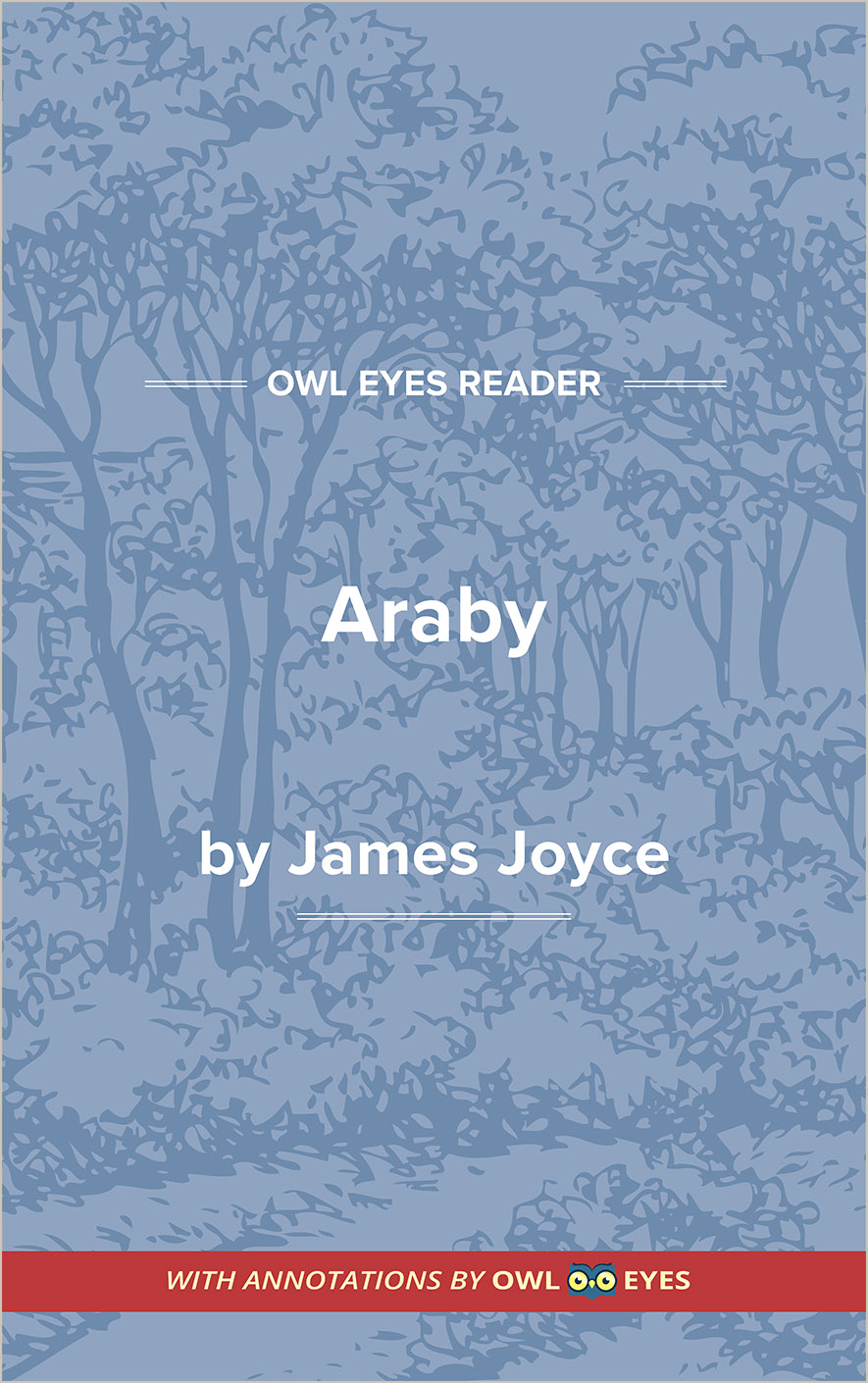Analysis Pages
Vocabulary in Araby
Joyce sets his story in late 19th-century Dublin, and so much of the vocabulary used reflects that time period—units of currency, for example. Additionally, since much of the story (and the collection Dubliners in general) includes the influence of Catholic and Protestant religious traditions, many vocabulary items with direct or indirect religious meanings and connotations are used.
Vocabulary Examples in Araby:
Araby
🔒"I allowed the two pennies to fall against the sixpence in my pocket..." See in text (Araby)
"Cafe Chantant..." See in text (Araby)
"florin..." See in text (Araby)
"Mrs. Mercer..." See in text (Araby)
"Araby..." See in text (Araby)
"a retreat..." See in text (Araby)
"the white border of a petticoat..." See in text (Araby)
"to veil..." See in text (Araby)
"a come-all-you..." See in text (Araby)
"the soft rope of her hair tossed from side to side..." See in text (Araby)
"I stood by the railings looking at her..." See in text (Araby)
"the areas..." See in text (Araby)
"we played till our bodies glowed..." See in text (Araby)
"NORTH RICHMOND STREET being blind..." See in text (Araby)
"set the boys free..." See in text (Araby)
"the shrill litanies of shop-boys..." See in text (Araby)

